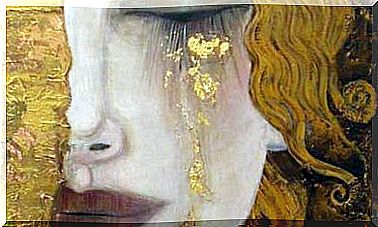Pisanthrophobia: When You Are Afraid To Trust Others

Most of us have ever suffered a heartbreak or betrayal by a friend or family member. And we have all experienced the difficulty of re-placing our trust in that person. In itself, trusting is not an easy task, but if you also suffer from anthrophobia, this work becomes a real chimera.
Trust is not free and is blurred by cliffs when looking for intermediate points : you either have it or you don’t have it. It is the fruit of months and years of relationships and shared experiences. We know that it takes us a long time to earn it, but very little to lose it. But they also say that the last thing you lose is hope and that time heals (almost) everything.
What is pisanthrophobia?
The person who suffers from pisanthrophobia is characterized by an irrational fear of establishing an intimate and personal relationship with others. The traumatic or harmful experiences that she has lived previously have marked her so much that the fear outweighs the desire to place her trust in other people.
Those who suffer from it begin to sense that sooner or later the whole world will disappoint or betray them. They are becoming extremely distrustful people. They are afraid of the idea that the situation could repeat itself and they do not give foot to that there is not the slightest possibility of reliving it.

“Why does it always happen to me?” “I will never be happy.” “I will always be alone”. These are some of the phrases that they return to again and again as a diagnosis of a situation that generates great impotence: that which gives the will, but not power. Therefore, along with mistrust, they also feel disappointment, frustration, sadness, anger, guilt or general shame.
Behaviors that the anthrophobic person develops
Nobody wants to suffer, but if we lose trust, we lose the essential foundation of any interpersonal relationship. The consequences of those who suffer from pisanthrophobia are not limited only to the affective level, but are transferred to the rest of the areas of their life : work, family, partner or socio-cultural.
Their autosuggestions lead them to carry out antisocial and isolationist behaviors that affect all these environments. Some of these behaviors are:
- Avoid activities that involve close interpersonal contact. His withdrawal is the result of his fear of criticism, an exaggerated fear of being judged, rejection or betrayal.
- Do not go to events or meetings where you have to meet strangers and are not sure that others will like you.
- Do not take any type of risk that could endanger your emotional plane. He is very reluctant to commit himself emotionally to other people. They dread opening up to others. For this reason, at times he tends to be considered a lonely, introverted, reserved and hermetic person.
- Try to avoid being intimate due to fear of being disappointed again. He does not want to find a partner again, because of his panic that they will fail him again.
All these repercussions increase in intensity exponentially the more emotionally involved the anthrophobic person is with the other person.
Lack of confidence is also its own
Normally, difficulties in trusting others stem from a mistrust of oneself. This distrust directly affects that intuition or sixth sense that tells us if a person is to be trusted or not. People with pisanthobia do not lack this intuition, what happens is that they do not trust anything in their ability to get it right. On the other hand, people without pisanthobia do not know that this intuition is wrong, but they do not panic at the fact that it can do it and therefore they trust their judgment for lack of a better one.
This lack of confidence in intuition tends to decrease confidence in other abilities as well, such as defending ourselves if someone attacks us. Thus, by thinking that we are more defenseless, we will become even more distrustful. In this way the circle closes and the “phobia” becomes more and more limiting.
Building an affective bond with another person in this context becomes a very difficult task, something similar to trying to climb a very high mountain when we have vertigo. The fear of falling increases with each step we take, until in size and intensity it exceeds the illusion of moving forward. That is why many people with pisanthrophobia abruptly cut off relationships: their strength is not enough to continue climbing, deepening that relationship, and the vertigo shoots up.

Going to therapy: the best step we can take
Trust does not return overnight, neither in oneself nor as a tendency to be deposited in others. Therefore, to overcome pisanthobia it is important to seek help. The psychologist can help us recover from what has hurt us emotionally and emotionally. Thus, by attacking the cause, the problem is likely to be solved as well.
- Building a good grieving process is vital if you want to trust again. To do this, it is necessary to accept the pain we feel and not run away from our feelings. Neither should you minimize the problem or look the other way.
- It takes time and rest. Your emotions have to stabilize, so starting a new relationship is not a good idea. In addition to being rushed, chances are you are not yet ready to trust anyone again and past traumas will resurface.
- Facing everyday situations that require trust in the other. For example, delegate some tasks to the couple that allow us to gradually increase security in him, do joint activities or naturalize the disorder.
Trusting another person again, in addition to being a real challenge, is also a vital necessity. The trust we maintain in close people has multiple benefits. Among them, it increases our happiness and self-confidence, allowing us to better cope with problems and reducing stress. Without a doubt, the value of the lens makes it worth trying again.









